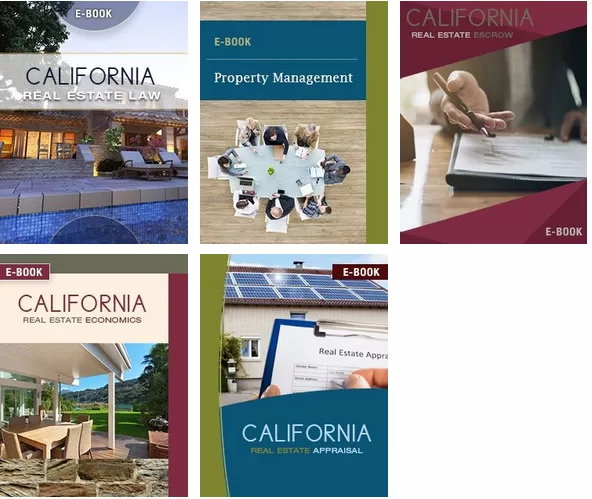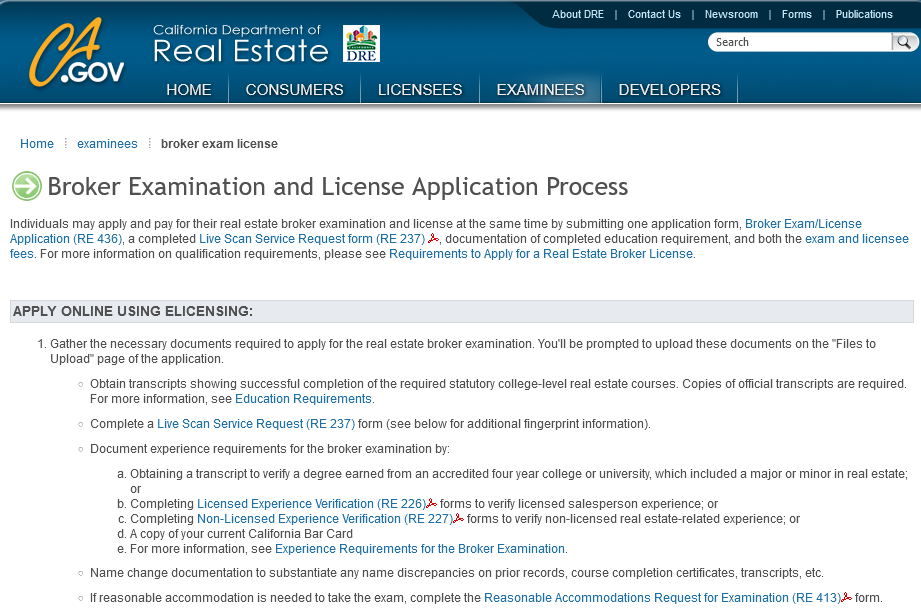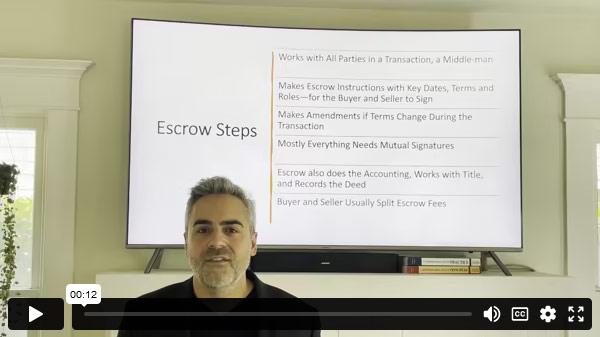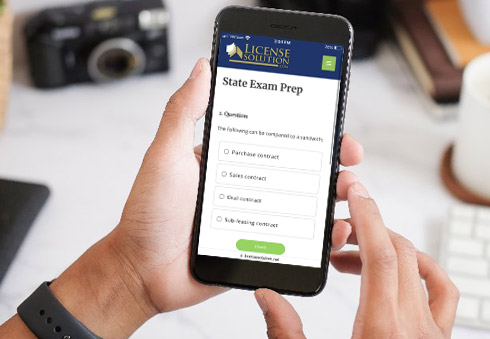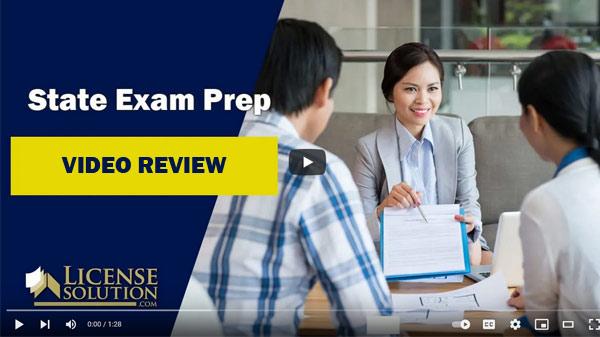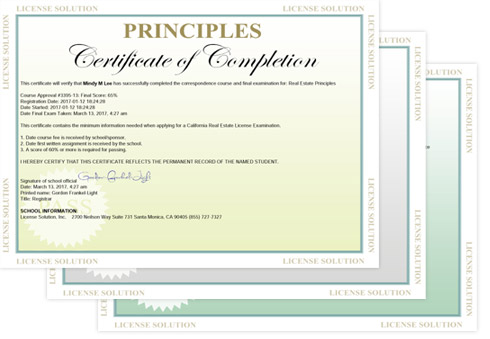Taking Your Real Estate Career to New Heights
The dynamic landscape of California’s real estate market opens the door to many lucrative opportunities for those considering a career. Whether you are a successful agent who wants to take your existing career to new heights, an entrepreneur, or someone with an unshakable passion for real estate, becoming a California real estate broker may be the right move.
Real estate brokers don’t just play a pivotal role in the Golden State’s vibrant housing market; they also enjoy the freedom and flexibility of running their own brokerage or managing a team of agents. Brokers can specialize in various property types, catering to a diverse clientele and leveraging their expertise to secure the best deals for their clients. The financial rewards of becoming a California real estate broker can also be significant, with commissions directly tied to the value of the properties they buy and sell.
There are five essential steps involved in obtaining a California real estate broker license, which include:
- Gaining two years of experience as a licensed real estate salesperson.
- Completing five college-level courses to expand your expertise.
- Applying for your California real estate broker license from the California Department of Real Estate (DRE).
- Studying and preparing for the California Real Estate Broker Exam.
- Passing the California Real Estate Broker Exam.
This article will guide you through each step, providing valuable insights and resources to ensure a smooth and successful journey toward obtaining your California real estate broker license.
Step 1: Building Your Foundation Through Prerequisite Real Estate Salesperson Experience
The California DRE emphasizes firsthand experience before entrusting you with broker responsibilities. Therefore, obtaining a broker license requires two years of experience as a licensed real estate salesperson in California during the last five years. This hands-on experience equips you with invaluable skills and knowledge crucial for success as a broker.
During this time, you’ll develop your client communication expertise. You’ll learn to actively listen to client needs, build trust, and effectively present properties and negotiate deals. Market analysis will become second nature as you deeply understand local market trends, inventory levels, and pricing strategies. Additionally, you’ll hone your transaction negotiation skills, ensuring you can advocate effectively for your clients throughout the buying or selling process.
Suppose you still need to complete the prerequisite two years of salesperson experience in California. In that case, alternative pathways exist to qualifying for the broker exam, such as equivalent experience gained as an escrow officer, real estate developer, property manager, or another real estate professional. The key is demonstrating at least two years’ experience, which translates to broker responsibilities. A four-year degree from an accredited college or university majoring or minoring in real estate can also satisfy the experience requirement.
Regardless of your chosen path, the DRE requires verification of your experience. If you’re a licensed California salesperson, an employment verification form signed by your brokerage will be necessary. For those claiming equivalent experience, a detailed description, an equivalent experience verification form, and signatures from two references are mandatory.
Step #2: Expanding Your Expertise with Pre-Licensing Education
Obtaining your California real estate broker license requires experience and a significant investment in expanding your knowledge base. This step involves the successful completion of eight California DRE-approved college-level courses. There is an exemption from this requirement for members of the California State Bar.
These courses delve deeper into various aspects of real estate, ensuring you possess a well-rounded understanding of the industry and its intricacies.
Here’s a breakdown of the five core courses and three elective options:
- Real Estate Practice (SB 1495 Compliant): This course focuses on recent legal updates and ethical considerations specific to California real estate. By staying current with the latest regulations and ethical guidelines, you’ll be well-equipped to navigate complex transactions and ensure client protection.
- Legal Aspects of Real Estate: This course delves into the legal foundation of real estate transactions. Students will explore property law, contracts, and relevant regulations governing various property types. Understanding these legal intricacies is vital for mitigating risks and ensuring smooth transactions.
- Real Estate Finance: This course equips you with advanced knowledge of real estate financing.You’ll explore various financing options available for different property types, delve into loan structures, and gain insights into the intricacies of mortgage qualification processes.
- Real Estate Appraisal: Mastering the art of property valuation is essential for a successful broker career.This course equips you with the necessary skills and knowledge to conduct accurate property appraisals. You’ll learn about different valuation techniques, market analysis methodologies, and how to generate reliable property value estimates.
- Real Estate Economics or General Accounting: Understanding market trends and financial principles is crucial for informed real estate decision-making. Choose one of these courses to gain valuable insights into economic factors influencing the market, analyze financial statements related to real estate transactions, and develop sound financial strategies for your clients.
In addition to these core courses, you’ll have the opportunity to select three electives from a comprehensive list that includes:
- Property Management
- Real Estate Principles
- Escrow
- Business Law
- Mortgage Loan Brokering and Lending
- Real Estate Office Administration
- Advanced Legal Aspects of Real Estate
- Advanced Real Estate Appraisal
- Advanced Real Estate Finance
- Common Interest Developments
- Computer Applications in Real Estate
Choose electives that align with your specific interests and career goals. For instance, courses like “Mortgage Loan Brokering and Lending” or “Business Law” could be valuable if you plan to specialize in commercial real estate. However, electives like “Property Management” or “Escrow” might be more relevant if you envision focusing on residential properties.
Choose a state-accredited real estate broker licensing school to ensure you receive high-quality education. Each course typically requires a minimum of 45 hours of coursework and may be offered in various formats.
After completing each course, you must pass a final exam administered by your chosen institution. Once you’ve completed all eight courses and passed the final exams, you’ll receive transcripts or course completion certificates, which you must submit with your California real estate broker license application.
Step 3: The Application Process
Having solidified your experience and knowledge base, you can now embark on the official application process for your California real estate broker license. Although the DRE offers a relatively streamlined system, careful navigation is essential to ensure a smooth and efficient journey.
The first step is to complete the California Broker License Application. This comprehensive document requires detailed information about your background, education, and experience. Be prepared to provide accurate and verifiable details, as the DRE conducts thorough background checks.
Although you may have already submitted a LiveScan digital fingerprint to become a real estate salesperson, it is mandatory as part of the broker application process. LiveScan will forward your digital fingerprint to the California Department of Justice (DOJ) to check against California and Federal criminal databases.
You must also submit official transcripts or course completion certificates for all eight pre-licensing courses you’ve completed. Additionally, if you gained experience as a licensed salesperson, an Employment Verification form signed by your brokerage will be required. For those claiming equivalent experience, a detailed description, the equivalent experience verification form, and signatures from two references are mandatory.
Step 4: Prepare for the California Real Estate Broker Exam
While challenging, the comprehensive California real estate broker exam assesses your knowledge. It ensures you possess the necessary expertise to excel as a broker. Thorough preparation is paramount to conquering this exam and achieving your real estate career goals.
Equip yourself with a variety of resources to maximize your learning and retention. Textbooks specifically designed for the California Real Estate Broker Exam offer in-depth explanations of key concepts and relevant regulations. Supplement your textbook studies with online study guides and practice exams. These resources often provide interactive elements, allowing you to test your knowledge in a simulated exam environment and identify areas that require further focus.
Crafting a dedicated study schedule is also crucial for adequate preparation. Block out specific times in your calendar dedicated to focused studying. Be realistic about the time commitment required and aim for consistent, manageable study sessions.
Consider forming a study group with fellow aspiring brokers. Discussing complex topics, sharing insights, and testing each other’s knowledge can significantly enhance your understanding and retention of the material. The camaraderie and support a study group offers can boost motivation and keep you on track during preparation.
Also, identify your weaker subject areas through practice exams or self-assessment quizzes.
Allocate dedicated study time to focus on these areas, utilizing additional resources like online tutorials or attending workshops offered by licensed real estate schools or independent exam preparation providers. These targeted efforts will ensure you’re well-prepared to tackle all aspects of the exam.
Most California real estate broker licensing programs also offer comprehensive exam preparation options.
Remember, the key to success lies in a well-rounded approach to exam preparation.
Step 5: Take and Pass the Broker Exam
The California real estate broker exam is a comprehensive 200-question multiple-choice test that is the final hurdle before obtaining your license. Understanding the format and staying focused is critical to successfully navigating this exam.
The exam covers many topics essential for a successful broker career. Expect questions related to the following:
- Contracts: Understanding legal agreements governing real estate transactions.
- Financing: Expertise in various financing options and mortgage processes.
- Laws of Agency: Mastery of the legal principles governing agency relationships.
- Practice of Real Estate and Mandated Disclosures: Knowledge of standard practices and ethical obligations in real estate transactions.
Property Ownership and Land Use Controls: Understanding different property types, ownership structures, and relevant regulations. - Transfer of Property: Expertise in the legal process of transferring real estate ownership.
- Valuation and Market Analysis: Skills in property appraisal and understanding market trends.
The exam is administered at designated testing facilities throughout California, including Los Angeles, Oakland, San Diego, Fresno, and Sacramento. You’ll have five hours to complete it, allowing ample time to consider each question carefully.
Here are some tips for taking the exam:
Stay calm and focused. On exam day, prioritize remaining calm and focused.
Deep breathing exercises and positive self-talk can help manage anxiety and ensure optimal performance.
Remember, you’ve invested significant time and effort in preparation. Trust your knowledge and approach the exam with confidence.
Effective time management is crucial. First, quickly scan through all questions to understand the overall scope. Allocate more time to challenging questions while ensuring you leave enough time to review your answers strategically.
Be bold and revisit questions during the allotted time. Reviewing later questions can illuminate earlier ones, prompting you to refine your answers. Use the process of elimination to rule out demonstrably incorrect answer choices before selecting the best option.
The passing score for the California real estate broker exam is 75%. If you achieve this benchmark, congratulations! You’ve conquered a significant challenge and are on your way to becoming a licensed broker. However, do not fret if you fail the first attempt. You can retake the exam as often as necessary within two years from your application date.
Remember, the key to success lies in thorough preparation, a positive mindset, and strategic test-taking techniques. By implementing these strategies, you’ll be well-equipped to confidently approach the exam and achieve your goal of becoming a licensed California real estate broker.
Realizing Your Dream of Becoming a California Real Estate Broker
California’s dynamic real estate market offers many opportunities for those in the industry. Whether you are an experienced professional interested in a new path or looking to take your career to the next level, becoming a real estate broker is a viable option.
Follow the five steps outlined in this article to transform your dream into a reality, and remember, the journey towards becoming a licensed broker requires dedication and perseverance, but the rewards are substantial.
If you are ready to take the following steps toward becoming a licensed real estate broker in California, contact us today.


